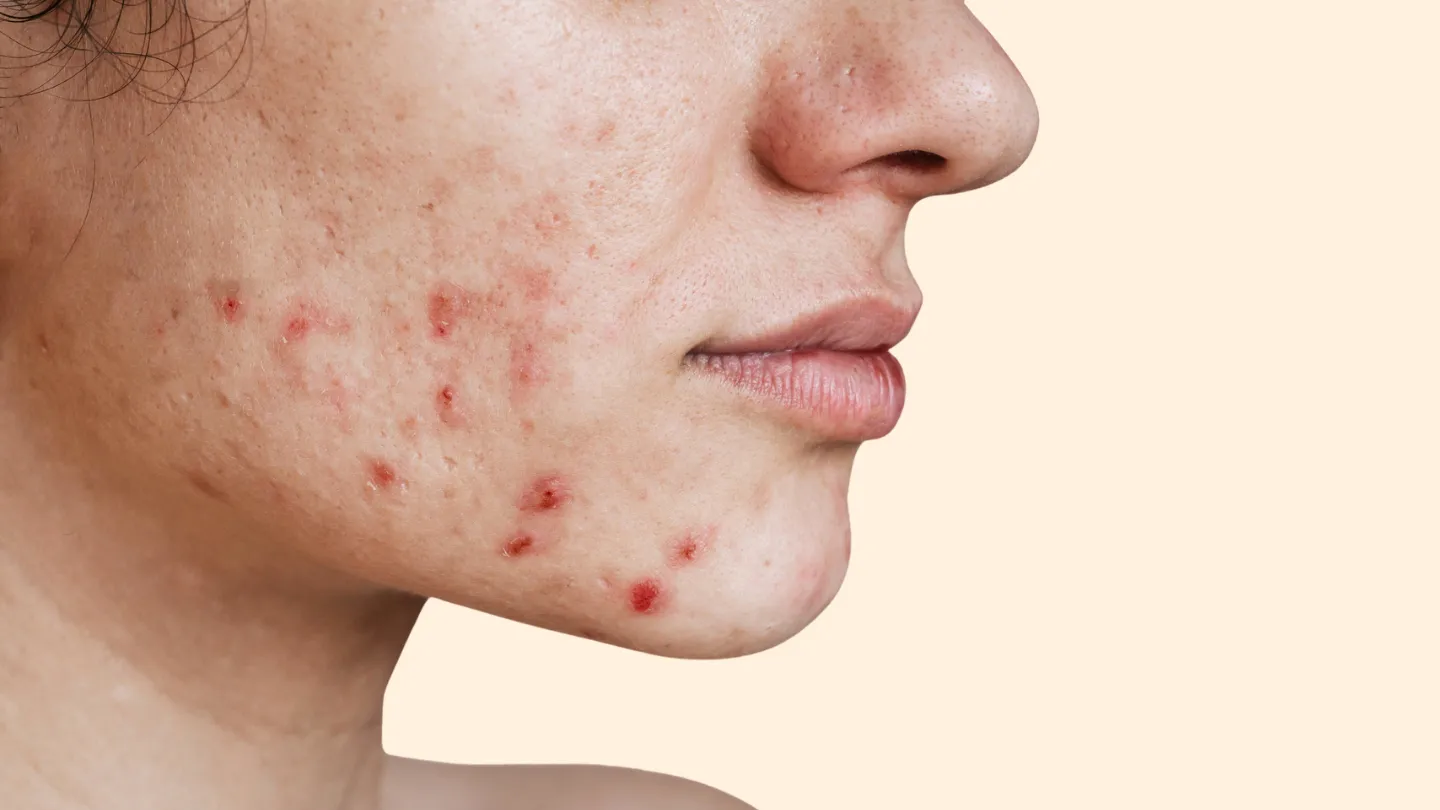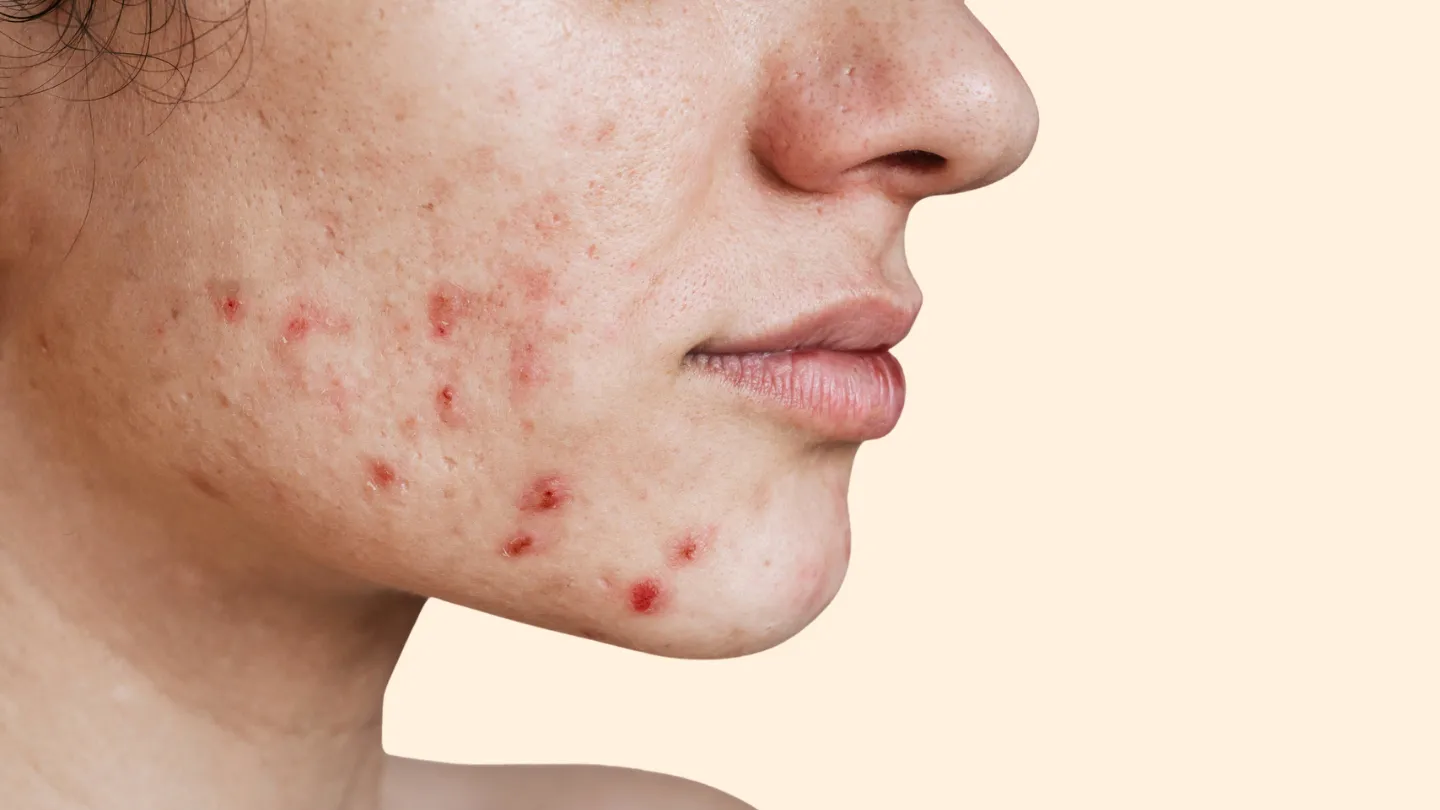The Science Behind Acne and Camera Lenses
To comprehend why acne appears more pronounced in photographs, we need to examine the intricate relationship between camera lenses and the way they capture light. Modern digital cameras, smartphones, and other imaging devices utilize various types of lenses, each with its own unique characteristics and properties.
The Role of Camera Lenses
Camera lenses are designed to capture and focus light onto a sensor or film, creating a digital or analog image. The properties of a lens, such as its focal length, aperture, and optical design, can significantly influence the appearance of objects in a photograph.
One key factor that contributes to the exaggerated appearance of acne on camera is the type of lens used. Lenses with shorter focal lengths, also known as wide-angle or wide-aperture lenses, tend to magnify and distort objects closer to the lens. This effect is known as "barrel distortion," and it can make facial features appear larger and more pronounced than they are in real life.
The Impact of Lighting
Lighting also plays a crucial role in how acne appears on camera. When taking a photograph, the camera's sensor captures the light that bounces off an object or person's face. Depending on the intensity, angle, and quality of the light, blemishes and imperfections on the skin can become more or less visible.
In general, harsh, direct light can create deep shadows and highlights that accentuate the texture and irregularities of the skin, making acne appear more prominent. On the other hand, soft, diffused light tends to minimize shadows and provide a more even illumination, which can help reduce the appearance of blemishes.
Factors That Contribute to Acne Severity on Camera
While camera lenses and lighting are significant contributors to the exaggerated appearance of acne in photographs, there are several other factors that can influence the severity of acne on camera.
Skin Texture and Oil Production
The texture and oil production of your skin can impact how acne appears on camera. Individuals with oily skin or enlarged pores may experience more pronounced blemishes in photographs due to the way light reflects off the skin's surface.
Excess oil can cause light to bounce off the skin in an uneven manner, creating highlights and shadows that can accentuate the presence of acne. Additionally, enlarged pores can make blemishes appear more prominent, as they provide a deeper crevice for light to cast shadows.
Makeup and Skin Care Products
The use of makeup and certain skin care products can also contribute to the appearance of acne on camera. Some cosmetic products, particularly those containing silicones or heavy oils, can create a shiny or reflective surface on the skin. This effect can amplify the visibility of blemishes in photographs.
It's essential to choose makeup and skin care products that are non-comedogenic (meaning they won't clog pores) and formulated specifically for acne-prone skin. Consulting with a dermatologist or skincare professional can help you identify the best products for your skin type and concerns.
Psychological Factors
Believe it or not, psychological factors can also play a role in how we perceive our acne on camera. Many individuals with acne tend to be highly self-conscious about their appearance, which can lead to a heightened awareness and sensitivity to blemishes.
When looking at photographs, those with acne may be more likely to fixate on their blemishes, magnifying their perception of the severity of their condition. This psychological bias can make acne appear worse than it actually is, even when the camera may not be significantly exaggerating the issue.
Tips to Minimize the Appearance of Acne on Camera
While you can't completely eliminate the exaggerated appearance of acne in photographs, there are several strategies you can employ to minimize its impact.
Choose the Right Lighting
When taking photographs, try to use soft, diffused lighting. Avoid harsh, direct light sources that create deep shadows and highlights. Natural, indirect sunlight or a ring light can provide a more flattering and even illumination that helps minimize the appearance of blemishes.
Adjust Camera Settings
If you're using a DSLR or advanced camera, adjust the settings to minimize distortion and optimize image quality. Use a longer focal length lens (around 50-85mm) to reduce barrel distortion and avoid wide-angle lenses that can exaggerate facial features.
Additionally, adjust the aperture (f-stop) to control the depth of field and ensure that your face is in focus. A narrower aperture (higher f-number) will provide a deeper depth of field, keeping more of your face in sharp focus.
Practice Good Skin Care Habits
Maintaining a consistent and effective skincare routine is essential for managing acne and minimizing its appearance on camera. Consult a dermatologist to develop a personalized regimen that includes cleansing, exfoliating, and applying acne-fighting ingredients like salicylic acid, benzoyl peroxide, or retinoids.
Remember to use non-comedogenic products and avoid heavy, greasy formulas that can clog pores and create a shiny complexion. Staying hydrated and following a healthy diet can also contribute to healthier skin and a more even complexion.
Embrace Confidence and Self-Acceptance
Finally, it's essential to cultivate a sense of confidence and self-acceptance. While acne can be a frustrating condition, it's important to remember that your worth and beauty extend far beyond the temporary blemishes on your skin.
Embrace your unique features, focus on your positive qualities, and surround yourself with supportive individuals who appreciate you for who you are, not just your appearance. Building self-confidence and self-love can help you feel more comfortable in your own skin, both in real life and in photographs.
Conclusion
Understanding why acne appears worse on camera can be empowering, as it allows you to take practical steps to minimize its impact. By recognizing the scientific factors at play, such as lens distortion, lighting, and skin texture, you can employ strategies to create more flattering photographs.
Remember, your worth and beauty extend far beyond the temporary blemishes on your skin. Embrace self-acceptance, practice effective skincare habits, and focus on capturing the essence of your unique personality in your photographs. With time and patience, you can overcome the frustration of acne-related camera distortion and feel more confident in your own skin.
#Why does my acne look worse on camera #Adult Acne #Skin Care #Camera Lenses #Lighting #Self-Confidence
FAQs
Why does my acne look worse in selfies?
When taking selfies, the camera lens is typically very close to your face, which can cause barrel distortion. This distortion magnifies and exaggerates facial features, making acne appear more prominent than it does in real life.
Does acne look worse on camera for everyone?
While acne often appears more severe on camera for most people, the degree of exaggeration can vary based on factors like skin texture, oil production, and the type of camera lens used. Those with oily skin and enlarged pores may notice a more significant difference in the appearance of their acne in photographs.
Can I edit photos to make my acne look less noticeable?
Yes, you can use photo editing tools to help minimize the appearance of acne in photographs. Techniques like softening harsh shadows, adjusting the lighting, and using filters can help reduce the visibility of blemishes. However, it's important to remember that these are temporary fixes and managing acne through proper skincare and medical treatments is the best long-term solution.
How can I prevent my acne from looking worse on camera?
To minimize the exaggerated appearance of acne on camera, try using soft, diffused lighting, avoid wide-angle lenses, and maintain a consistent skincare routine with non-comedogenic products. Additionally, building self-confidence and focusing on your positive qualities can help you feel more comfortable in your own skin, both in real life and in photographs.
Is there anything I can do about the psychological impact of seeing my acne on camera?
It's essential to recognize that our perception of acne in photographs can be influenced by psychological factors, such as heightened self-consciousness and fixation on blemishes. Seeking support from loved ones, practicing self-acceptance, and focusing on your unique qualities beyond appearance can help mitigate the psychological impact of seeing acne in photographs.
Disclaimer: This article is for informational purposes only and does not constitute medical advice. Always consult with a healthcare professional before starting any new treatment regimen.
Related Coverage
Does fasting help with acne? Discover the science behind the relationship between fasting and acne, potential benefits, drawbacks, and best practices for incorporating fasting into your skin care routine....
Learn what triggers adult acne scientifically, including hormones, stress, makeup, and more. Discover dermatologist-backed solutions to clear up stubborn pimples....
Try a gentle hormonal acne treatment you can do at home, with proven actives, natural options, and lifestyle tips for clear skin....
Learn how to accurately and sensitively depict the physical, emotional, and psychological symptoms of depression in writing to increase awareness and understanding....
Retinoids, antibiotics, hormonal therapies and more - learn how the top prescription acne medications like Retin-A, Differin and Epiduo Forte help treat teenage breakouts....
Butt acne scars often leave behind dark spots, redness and uneven texture. Preventing blemishes can limit damage. Using OTC creams, chemical peels and microneedling may help reduce the appearance of scarring over time....
Extreme blackhead popping can worsen acne. Learn the causes, risks of picking, when to extract safely, and better ways to care for blackheads without harsh popping....
Pomade acne is a common struggle for many. Learn what causes pomade breakouts and get expert solutions to treat and prevent pimples from pomade residue buildup....
Blackheads on the inner thighs can be caused by clogged pores, friction, and sweat. Treat mild cases with exfoliation and acne creams. See a dermatologist for severe acne....
Discover the most effective acne body washes for treating and preventing pimples on your chest, back, and shoulders. Discusses ingredients that clear body acne....








